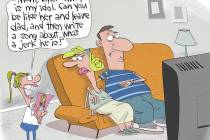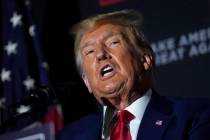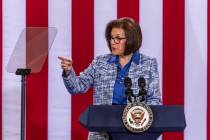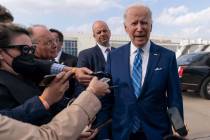Health care technology at your fingertips
Scores of people from around the world are coming to Las Vegas to see the future of technology at the annual Consumer Electronics Show, the world's largest consumer technology trade show. What might surprise people is that the next cutting-edge technologies may not be a smart TV or a tablet - they are health-related innovations that are already in their hands.
A majority of Americans - 53 percent, according to a recent national survey - don't use consumer electronics to access important health care information, options and services. However, more than 60 percent of survey respondents anticipate increasing their use of consumer technology for just these purposes during the next year. This suggests the public is starting to realize how technology and consumer electronics can help them learn more about health, empower them to take better control of their individual health, and even simplify the entire health care system.
So what innovations at CES will help shape tomorrow's health care system?
Here are a few examples of how consumer technology already intersects with personal health:
■ Exergaming: Studies are showing that "exergaming," which refers to video games that also serve as a form of exercise, are becoming an increasingly popular and effective way to reduce the growing obesity epidemic among children and adults. Driven by interactive video game consoles that incorporate movement into game play, exergaming represents a new, fun way to get in shape, at home and in other settings. For example, UnitedHealthcare and Konami have teamed up to install DanceDanceRevolution Classroom Edition, the latest iteration of the popular dance game, in three schools. The participating schools, in Florida, Georgia and Texas, will track the impact the gaming system has on the students' health, well-being and exercise habits.
■ Health care pricing tools: Historically, patients often don't know how much their medical care actually costs, with the bill arriving months after treatment. That is starting to change as new online tools enable consumers to comparison shop for health care services, based on quality as well as cost. Some of these tools enable people to create side-by-side quality comparisons, ensuring consumers place just as much emphasis on quality as they do price.
■ Mobile applications: The growing prevalence of smartphones has started to empower consumers to take charge of their health like never before. The possibilities are almost limitless, with a range of apps already improving the health and well-being of people nationwide. Recently introduced apps enable friends, colleagues and families to participate together in health challenges of their own design, while other apps enable people to find in-network doctors, check benefit information and review the status of a specific claim.
CES is the place where America gets a sneak peek at the entertainment, information and education technologies of the future.
But we don't need to look too far ahead to see the future of health care in America; the answer is already in front of us. Just look down at the remote control, game console or smartphone that's already in your hand.
These innovations are enhancing the health care system, and people are taking more control of their personal health - trends that will help create a happier and healthier America.
Reed Tuckson, M.D., is executive vice president and chief of medical affairs for UnitedHealth Group.























